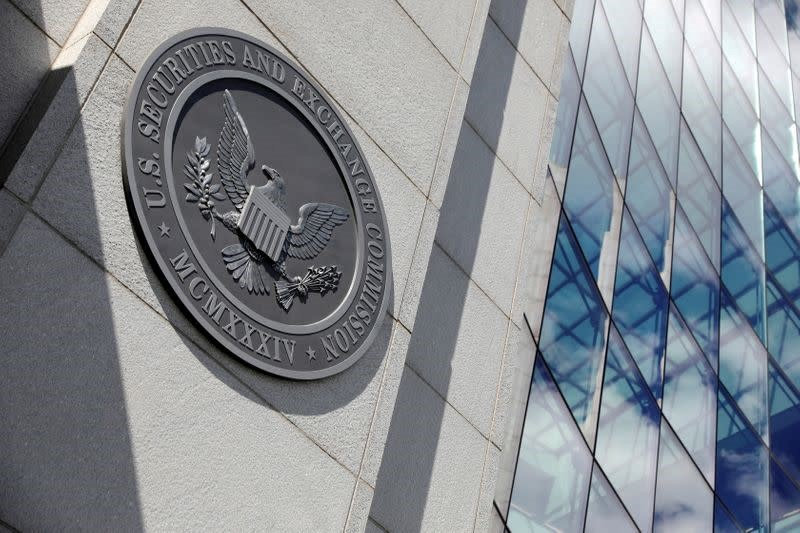In the world of finance, where every decision can ripple through the economy, understanding the regulatory landscape is crucial. The U.S. Securities and Exchange Commission (SEC) has long been the guardian of Wall Street, ensuring that markets operate fairly and transparently. However, the recent ASA lawsuit against the SEC has thrown a spotlight on the agency’s practices and sparked debate across financial institutions, banks, legal firms, and communication entities alike. If you’re a decision-maker in these sectors, understanding the implications of this lawsuit—and the broader impact on SEC regulations—is more important than ever.
The ASA Lawsuit: A Challenge to the SEC’s Authority
The ASA lawsuit, formally filed by the American Securities Association, challenges the SEC’s approach to enforcement and regulation, particularly around certain communication practices. The crux of the lawsuit revolves around allegations that the SEC has overstepped its authority, particularly in how it monitors and controls business communication between financial institutions and their clients.
As a financial professional, you’re likely aware that the SEC’s regulations are designed to prevent market manipulation and protect investors. However, the ASA argues that some of these rules, particularly those governing electronic communication, are overly restrictive and hamper the ability of firms to communicate effectively and transparently with their clients. This lawsuit brings to the forefront the tension between regulation and business autonomy—a tension that has significant implications for the way Wall Street operates.
Why Should You Care About This Lawsuit?
If you’re working within financial institutions, banks, or legal firms, the outcome of the ASA lawsuit could have direct consequences on your operations. Here’s why:
- Operational Impact: The lawsuit challenges specific SEC rules that could affect how your firm communicates with clients. For instance, tighter regulations on electronic communications could lead to increased compliance costs and operational delays. This is particularly concerning in a world where speed and efficiency in communication can be the difference between securing a deal and losing one.
- Legal Precedent: The lawsuit could set a legal precedent that either reinforces or diminishes the SEC’s regulatory power. A ruling in favor of the ASA could lead to a loosening of regulations, which might benefit your firm in terms of reduced compliance burdens. Conversely, a ruling in favor of the SEC could lead to stricter enforcement of current regulations, increasing the need for robust compliance frameworks within your organization.
- Market Confidence: At its core, the SEC’s mandate is to maintain market confidence by ensuring transparency and fairness. If the lawsuit undermines the SEC’s authority, it could lead to greater market volatility, as investors might perceive a weakened regulatory environment as a sign of increased risk.
The Benefits of SEC Regulations: Why They Matter to Your Business
Despite the challenges posed by the ASA lawsuit, it’s important to recognize the benefits of SEC regulations for your business. While they may seem cumbersome at times, these regulations play a critical role in maintaining the integrity of the financial markets.
Investor Protection: SEC regulations are designed to protect investors from fraud and market manipulation. By ensuring that all market participants operate on a level playing field, these rules help to maintain investor confidence, which is essential for the smooth functioning of the financial markets.
Market Stability: In an era where information travels at the speed of light, the potential for misinformation to disrupt markets is significant. SEC regulations help to mitigate this risk by ensuring that all market participants have access to accurate and timely information.
Reputation Management: For financial institutions, banks, and legal firms, maintaining a strong reputation is crucial. SEC regulations provide a framework that helps to ensure that your firm operates transparently and ethically, which can enhance your reputation among clients and investors.
Navigating the Regulatory Landscape: Tips for Compliance
Given the ongoing scrutiny of the SEC and the potential changes to its regulatory approach, how can your firm stay ahead of the curve?
- Invest in Compliance Technology: As regulations around business communication evolve, investing in compliance technology can help your firm stay on the right side of the law. Tools that monitor electronic communications, for example,
can ensure that your firm remains compliant without sacrificing efficiency.
- Stay Informed: The regulatory landscape is constantly changing, and staying informed is key to maintaining compliance. Make sure that your compliance team is up-to-date with the latest developments in SEC regulations, and consider subscribing to industry newsletters or attending relevant conferences to stay ahead of the curve.
- Engage in Dialogue: Don’t be afraid to engage in dialogue with regulators and industry peers. By participating in industry groups or attending regulatory forums, you can gain valuable insights into the direction of regulatory changes and potentially influence the conversation around these issues.
The Path Forward: What Does the Future Hold?
The ASA lawsuit represents a significant challenge to the SEC’s authority, and its outcome could have far-reaching implications for Wall Street. However, regardless of the outcome, one thing is clear: the need for a robust regulatory framework that balances the needs of market participants with the need for transparency and fairness.
As a professional in the financial, legal, or communication sectors, it’s essential to remain vigilant and proactive in navigating this complex landscape. By understanding the benefits of SEC regulations and staying informed about potential changes, you can ensure that your firm remains compliant and competitive in an ever-evolving market.
In conclusion, while the ASA lawsuit may present challenges, it also offers an opportunity to reflect on the importance of regulation in maintaining the integrity of our financial markets. The key is to strike a balance between regulation and business autonomy—a balance that will ultimately determine the future of Wall Street.
Stay tuned to developments in this case, and consider how your firm might need to adapt in the months and years ahead. The future of financial regulation is unfolding, and it’s up to you to ensure that your firm is prepared to navigate whatever comes next.
This article is a must-read for professionals in the financial and legal sectors. For more insights into what this means for the industry, check out our detailed analysis on whether the ASA lawsuit is the best way forward for the financial sector.







